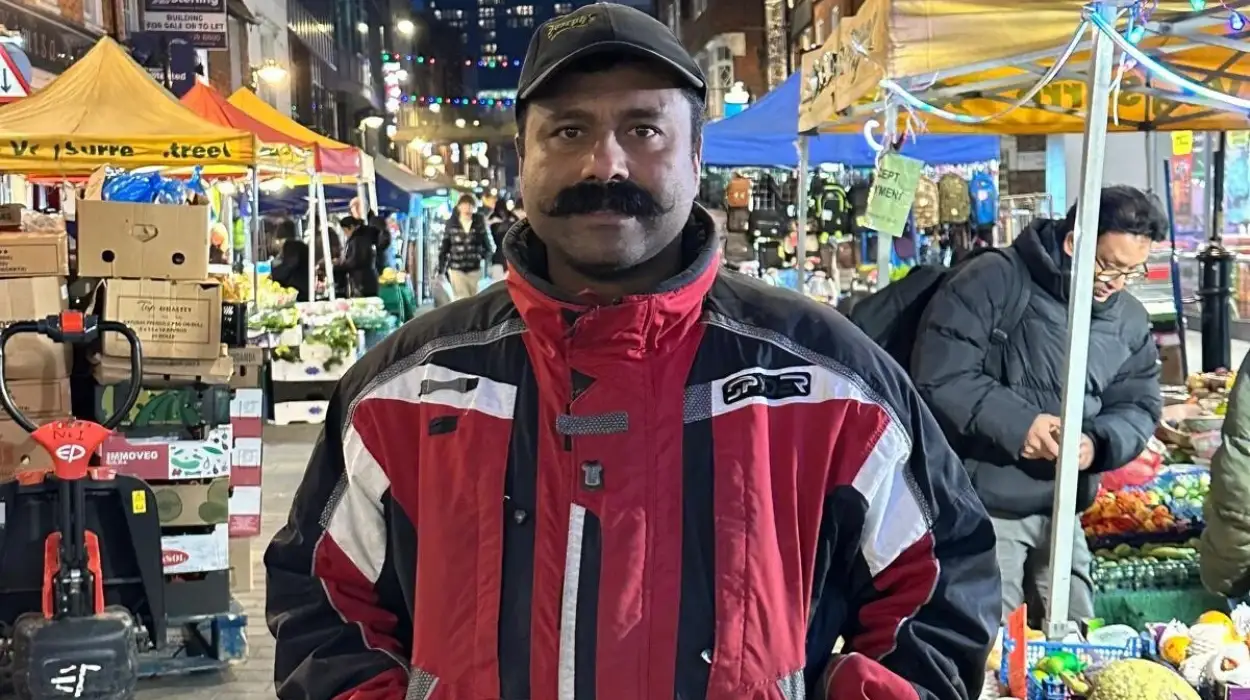Croydon (Parliament Politics Magazine) – Croydon businesses and traders support the Met’s pilot project introducing the UK’s first permanent live facial recognition cameras to combat rising crime.
According to the Met, the cameras will be mounted on buildings or lampposts and will only turn on when cops are in the vicinity utilizing the device.
To make an arrest, the algorithm compares a database of known identities and custody photos with a live camera feed of faces.
Jose Joseph, who has run a fruit and veg stall in Croydon’s Surrey Street Market for 15 years, said:
“I support the cameras coming into our town centre because it will reduce crime.
It will help residents and customers feel safer.”
Shopkeepers and market vendors have been urging the police and council to lower the crime rates that have degraded the neighborhood in recent months.
Rijkaard Salu Siafa was fatally murdered at Fellmongers Yard, an alleyway off Surrey Street, in April 2024. A shopkeeper was attacked by two teens who were robbing his beauty shop in July, three months later.
Shopkeepers reported that in addition to violence, the area’s businesses are also worried about an increase in stealing.
Given how well facial recognition cameras work to reduce crime, many local companies and citizens are in favor of their deployment. The desire for less crime and safer neighborhoods is what motivates this support.
However, advocacy organizations like Big Brother Watch have voiced concerns regarding privacy and the technology’s accuracy. The Metropolitan Police contend that strict safeguards are in place to preserve privacy and that the technology is an essential tool in making London safer, notwithstanding these reservations.
Mr Joseph, who is the chair of the Croydon Town Centre Small Business Association, said:
“Some people have raised concerns about these cameras making us unsafe.
I totally disagree. Your neighbour’s, the roads, shops and transport networks all have CCTV, and people don’t worry about that. Without evidence the police can’t do much.
This is for the safety of women and children, customers and residents.”
Campaign organizations like Big Brother Watch (BBW) have criticized the Met’s use of LFR, calling the technology’s implementation “dangerously authoritarian.”
Croydon has higher crime rates than the average for London, making it a hotspot for violent crime and the possession of weapons. Safety precautions are a top priority because local businesses have experienced severe difficulties as a result of violence and theft.
Faces are scanned by the cameras and compared to a database of known criminals. The technology only works when officers are on hand to respond to alerts, and non-matches are instantly removed.
This focused strategy aims to resolve privacy issues and improve public safety.
According to the group, using it can “encourage a lack of accountability” and isolate cops from criticism.
According to the Met, the Croydon pilot will undergo a thorough examination and there are currently no plans to expand the operation to any other locations in London.
A person’s biometrics are “immediately and permanently” erased if they pass an LFR camera and are not desired by the police.
A spokeswoman from the Met said:
“We are committed to making London safer, using data and technology to identify offenders that pose a risk to our communities.
Last year we made over 500 arrests using LFR – removing dangerous individuals who were suspected of serious offences, including strangulation, stalking, domestic abuse and rape.”
How effective have the facial recognition cameras been in reducing crimes in Croydon?
There have been a number of notable arrests since Croydon’s implementation of live face recognition (LFR) technology. As of early 2024, for example, LFR had resulted in more than 77 arrests in Croydon alone, including people wanted for violent and sexual offences.
Since violent crime has been a recurring problem in Croydon, the technology is viewed as a tool to help battle it. It seeks to lower crime rates and improve public safety by more effectively locating and apprehending suspects.
Because permanent facial recognition cameras make it more likely that a criminal would be recognized and apprehended, they may act as a deterrent to would-be offenders.

